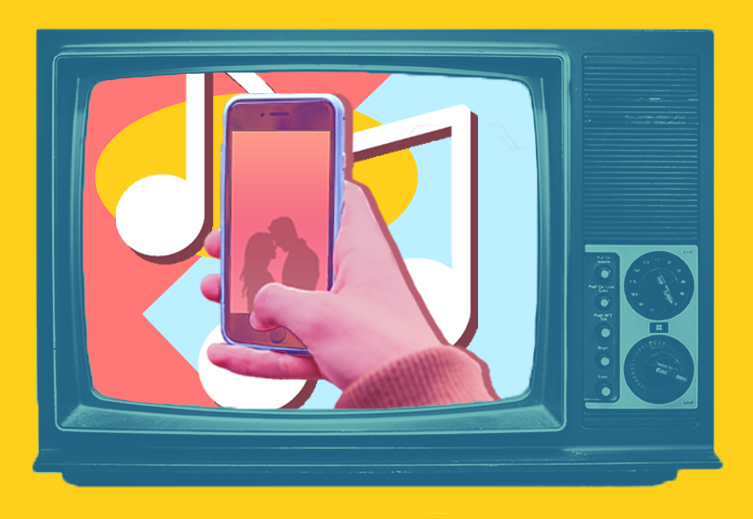What Do We Mean by ‘Guilty Pleasures?’
(Graphic by Sydney Stam | Daily Utah Chronicle)
February 20, 2021
Early in the quarantine, I was invited to join a friend’s romance book club. This collective of readers is all women, well-read and passionate about a good love story.
Nearly weekly, we meet via Zoom to discuss the tropes, pitfalls and character development in the chosen novel. In our last meeting, in a strange turn of events, we all felt the same way about the book — it dropped the ball on every hot button issue it tried to address.
What was more surprising than all of us agreeing, however, was a comment that one of the girls made at the end of the discussion — “It’s a romance novel, though, so what did we expect?”
We nodded our heads, ready to shrug off the bad writing, offensive dialogue and mishandling of sensitive situations as a folly of the genre. It took a second for us — people who bestow reverence on romance authors, who analyze, critique and study the storytelling process as a passion — to realize we were guilt-tripping ourselves. Our group of women, brought together by a love of the genre, concluded our meeting by mocking it. Our relationship with our beloved books was fragile enough to dismiss at the first sign of weakness.
“Guilty pleasures” is a loaded term, usually gracing playlist titles for early 2000s hits, reality TV marathons, or late-night snacks. Contemporarily, we assign the “guilty pleasure” label to something enjoyable that feels like it should be embarrassing. And, more often than not, those forms of entertainment are associated with women — like reading romance novels.
In 2015, at the peak of Taylor Swift’s “Shake It Off” era, Saturday Night Live aired a sketch about Swiftamine, a drug for people who suddenly realized they liked her music. The sketch caught the attention of many men, who desperately defended their decision to stream her award-winning, radio-dominating hits by slamming other female artists.
Swift, an objectively “good” artist — at least in terms of streaming and sales data — is surrounded by charged language, with stories on her using words like “accusation” and “defense,” as if these men were going to war rather than shuffling their Spotify liked songs. The idea is this: men can’t like romance novels, and they certainly can’t like Taylor Swift. Therefore, we better all be embarrassed, regardless of gender, to derive joy from anything of the sort.
I’ve been getting better at noticing when others shamed me for the act of liking things, but lately, just like in the book club, I’ve heard myself silence…myself. I’d hide updates of my romance books on Goodreads, make my top 40 playlists private, and blush pretty hard when telling people my Candy Crush level. I felt like all of these activities — ones that genuinely brightened some pretty bad days — were guilty pleasures, wastes of time that should be kept private. No one needs to know that I, me of all people, like one of the most downloaded gaming apps of all time! What would they think?
Of course, I do believe some forms of entertainment should provoke embarrassment: listening to artists that use their influence to perpetuate abuse, like Tory Lanez, shouldn’t be acceptable.
Overall, though, I’ve tried to stop asking what others will think about my hobbies and starting asking myself why I do what I do. Sometimes the romance novels I read are substantive, intelligent, thought-provoking and stand-alone strong pieces of literature. Other times they’re pure fluff. Either way, if I like it, it doesn’t matter. It’s not shameful to run to a Taylor Swift song, watch a soap opera, order a fruity drink, or anything else that the culture labels a “guilty pleasure.”
It’s not a waste of time to make yourself happy.









